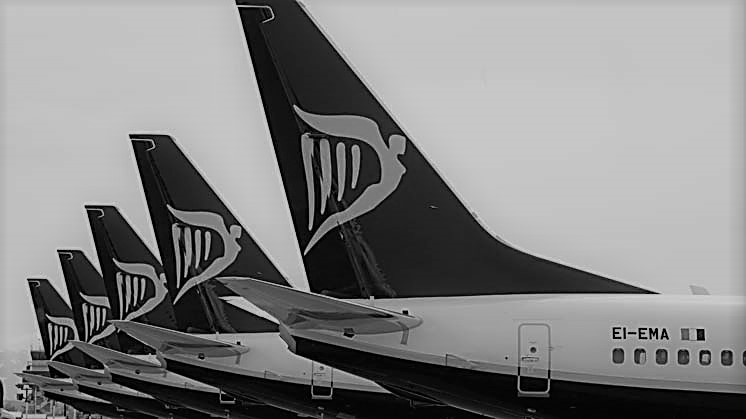By Conor Humphries and Victoria Bryan
Ryanair blames an internal “cock up”, but its cancellation of 2,000 flights exposes the struggle that low-cost carriers face as they risk growing faster than their ability to recruit experienced pilots.
Junior pilots are readily available, with hundreds unemployed in Britain alone, but Europe’s budget airlines require many extra captains who can take flights without needing lengthy and expensive training, or to accumulate flying hours.
Ireland’s Ryanair, which has overtaken established carriers to become Europe’s biggest airline by passenger numbers, is hiring around 600 pilots this year, as is Norwegian Air Shuttle. For British-based easyJet the figure is 450 and in all cases these are their highest ever levels of pilot recruitment.
“The low cost airlines are arguably more vulnerable to a pilot shortage because of their growth, which is now compounded by their size,” said Gerald Khoo, an analyst with Liberum.
“Normally, in a tight labour market I would assume slightly higher staff costs or the airline could trim its capacity growth,” he said. “Not getting the balance right results in the situation we have seen at Ryanair in the past week.”
Ryanair has disrupted plans for hundreds of thousands of travellers with the cancellations this month due to the pilot shortage.
The carrier put its problems down to too many pilots taking leave at the same time. But the shortages are being felt across an industry where the budget airlines are flying tens of millions more passengers each year, driving an increase in European short-haul capacity of around seven percent.
Norwegian is particularly jostling Ryanair for senior talent. Both have Boeing fleets, meaning that when pilots defect they fly similar aircraft, lessening training time and expense. Norwegian says it has poached more than 140 pilots from Ryanair; Dublin-based Ryanair puts the number at less than 100.
Ryanair is increasing wages for its pilots based in Frankfurt and Berlin in order to steal staff from Air Berlin, even though the insolvent German carrier flies Airbus jets rather than Boeings, making this a more expensive exercise.
Lufthansa’s budget unit Eurowings is also making a bid for Air Berlin’s experienced pilots.
Mark Simpson, an analyst with Goodbody Stockbrokers, said he didn’t see a significant risk that Ryanair would have to curb its expansion plans. “This is a pinch they are facing,” he said. “But it hasn’t reached a crisis point.”
Aside from Air Berlin, Italy’s Alitalia, Latvia’s Air Baltic and Romania’s Tarom were all struggling and could to shed pilots, easing the shortage, he added.
HIGHER GRADES
The pressure is being felt acutely in senior roles, according to the British Airline Pilots’ Association, which says around 500 of its more junior members are unemployed.
“We’ve seen huge recruitment drives …. in recent years. However, this recruitment tends to be for experienced pilots,” said BALPA General Secretary Brian Strutton.
Recruitment web site Indeed.com said pilot vacancies in Britain were 60 percent harder to fill than other jobs, as measured by the number of positions still vacant after 60 days.
Ryanair boss Michael O’Leary said captains have been targeted since the cancellations with a 10,000 euro sign-on bonus. “We may have got pilot pay a little on the low side,” he told investors at Ryanair’s annual general meeting this week.
He insisted the problems were localised and that certain parts of Europe had a surplus of experienced pilots.
Ryanair this week also announced wage increases in Dublin, where it says it believes Norwegian Air is trying to hire 40 of its pilots, and in London where it says pilots are being targeted by a number of rivals.
A spokesman for Norwegian Air said it saw significant competition for pilots, but was offering competitive conditions and the prospect of flying to destinations in southeast Asia and the United States that Ryanair could not match.
EasyJet declined to comment on whether it was struggling to attract senior pilots.
JOB SATISFACTION
Ryanair is widely regarded to pay competitive wages to senior pilots. Captains earn 150,000-180,000 euros a year, while first officers get 80,000-120,000. But it has been criticised by some current and former staff about working conditions and the way the blunt-speaking O’Leary talks about his staff.
Pilots are often employed via agencies and do not enjoy standard benefits for sick pay, pensions or health insurance.
O’Leary insisted at the AGM he had a good relationship with his pilots, but said: “I would challenge any pilot to explain how this is a difficult job,” expressing doubt that anyone could be fatigued after what he said was a maximum of 18 hours of flying per week.
Ryanair gets a rating of 2.4 on employee-review site Glassdoor, against 4.0 for easyJet.
ALWAYS GETTING BETTER
Four years ago Ryanair was berated by investors for treating its customers badly, forcing a promise from O’Leary to stop “unnecessarily pissing people off” and launching its successful Always Getting Better customer service drive.
But unlike the current crisis, poor customer service never threatened the airline’s core operations. Investors remain skittish, with its shares down 5.5 percent since the crisis broke to close at 16.44 euros on Friday.
There are signs that pilots are using the shortage to assert themselves. While Ryanair doesn’t recognise trade unions, staff at a number of bases wrote a joint letter to management with a series of demands including the implementation of permanent local contracts under local employment law.
The European Cockpit Association said Ryanair may now have to treat its staff better as well as its customers.






